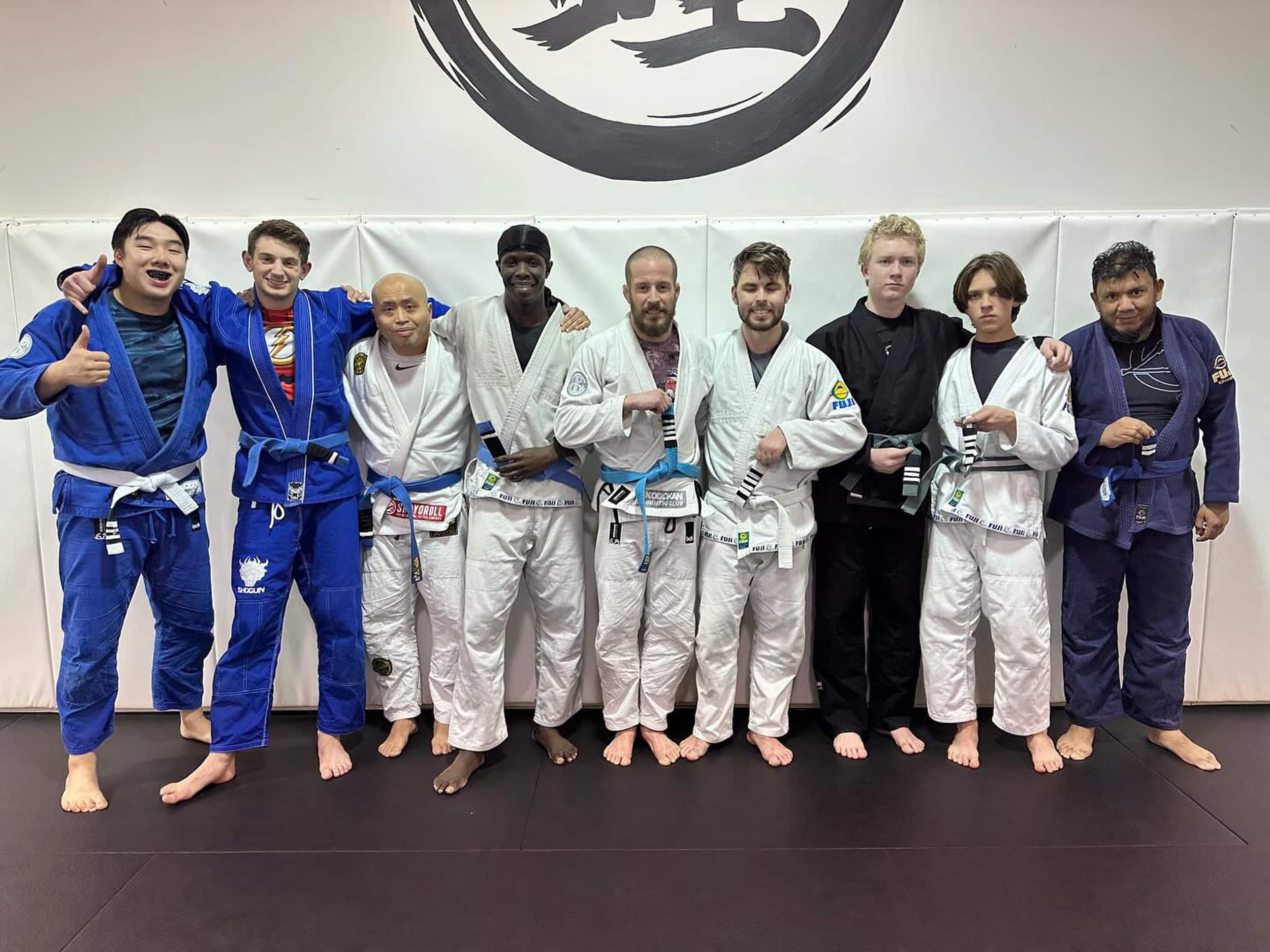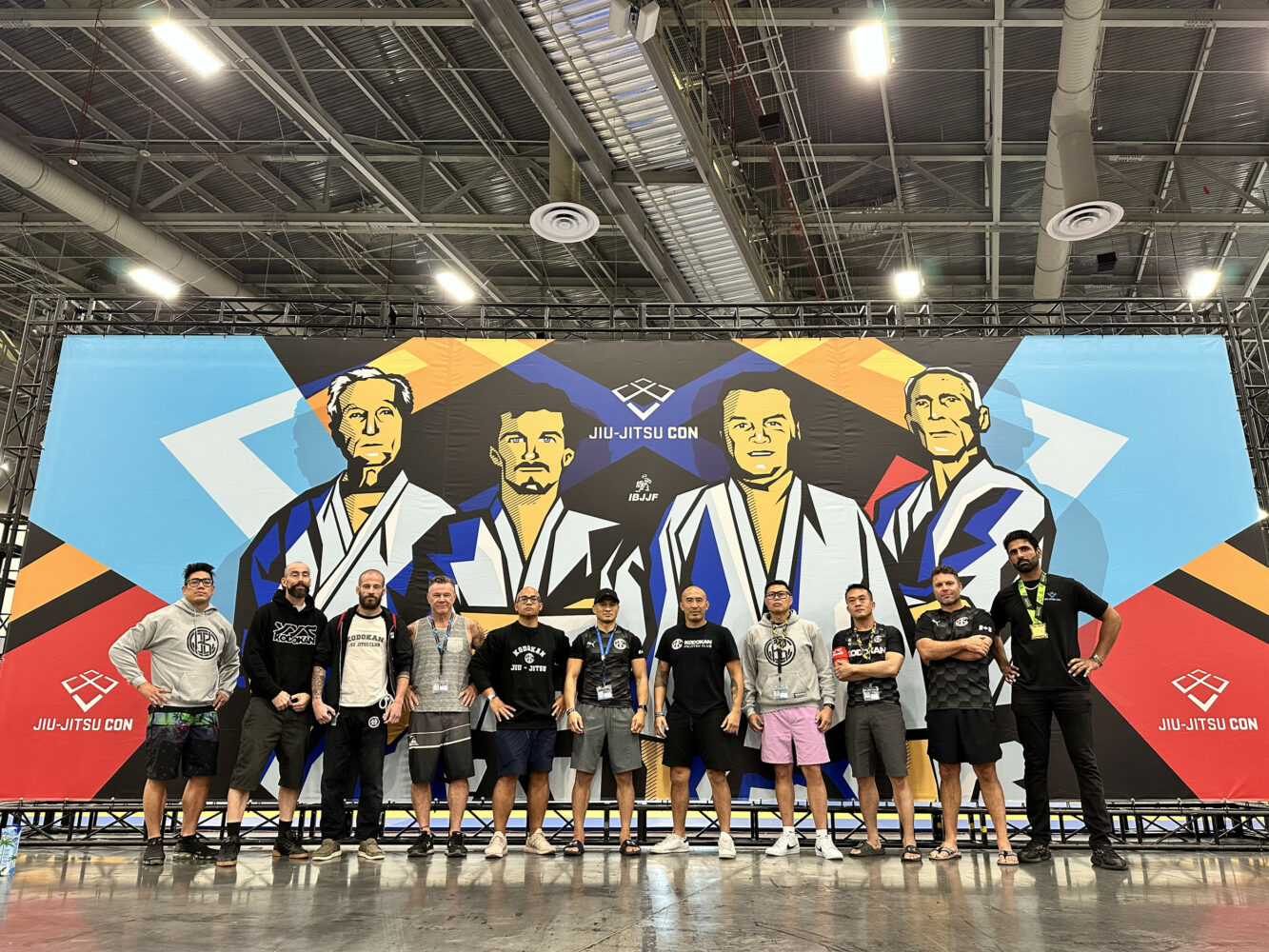The Secret Sauce
The Secret Sauce: How competition helps your Jiu-jitsu game
Whether you are new to Jiu-jitsu or a veteran, one question you will eventually consider is whether to compete. This is a natural question because our development in Jiu-jitsu is relational. We train not just to get better compared to people who are not training, we also want to improve at the same rate or faster than people we train Jiu-jitsu with. It is in the quest to maximize the rate of our progress, especially relative to other practitioners, that options like competition present themselves.
The truth is you don’t need to compete to become an accomplished jujiteiro or jujiteira. There are many high-level black belts and accomplished players who for one reason or another have only limited or no competition experience. The decision you make about competition will be an individual one, but it is important to know how competition works to improve your game. Understanding the subtleties can assist you in your decision making, and even be of assistance if you decide not to compete. To that end, below are five points that explain how competition can help accelerate your Jiu-jitsu progression:
1. Competition removes you from your comfort zone
If you train in the same Jiu-jitsu dojo day in and day out, you will become familiar with your training partners, their techniques and tendencies, as well as their strengths and weaknesses. While familiarity has its advantages, such as leading to increased sharing of jiu jitsu knowledge among fellow rolling partners, there is also much to be gained from rolling with completely new partners who have new techniques and methodologies you have not been exposed to before.
Competition in and of itself presents new dynamics that are not present in the academy. Looking at weight classes, brackets, rule sets, the stress of competition, and listening to your coach from the side of the mat as well as simultaneously your opponents’ coach, as you fight, are all factors which will create new and unexpected challenges. In the midst of all this you will be forced to compete at your maximum effort against a new set of opponents who are also using all their strength and skill, with only limited time to rest between matches.
Another interesting dynamic of competition is that you will also have a chance to observe your opponents as they fight each other, and try to formulate a winning strategy against each opponent and overall to win the competition. Of necessity this will sharpen your observational and analytical skills, as you may be facing that very competitor or the other next! The strategic thinking involved will be completely new and give you valuable experience that cannot be easily replicated from the comfort of the dojo.
2. Competition allows you to understand your strengths and weaknesses
One very important facet of competition is that it reveals truths about our Jiu-jitsu to ourselves that may be hidden otherwise. We all have days in practice where we feel good or bad about our training. The problem is feeling good or bad about how a practice went doesn’t necessarily translate into greater awareness of the strengths and weaknesses in our Jiu-jitsu game. Our minds are masters at consciously or subconsciously making excuses and forgetting.
Competition creates the opportunity for “teachable moments” because during competition we all care more. If we lose, we really want to know why we lost. If we win, we want to understand what we did right. Important lessons which may be missed, glossed over, or forgotten in practice are “driven home” and internalized in competition. Part of the journey of life is self-discovery, and it is no different with discovering our Jiu-jitsu game as part of our Jiu-jitsu journey.
3. Competition provides motivation
It goes without saying that winning feels good, and losing feels not so good. But whether we win or we lose, we always gain momentum through competition to keep improving. It might even be true that winning and losing in competition is not as important as the motivation to keep training that we gain from competing. A competition is just a competition. But the Jiu-jitsu journey goes beyond that.
One interesting thing about Jiu-jitsu is that our progress is not linear. Sometimes we feel like our game is really improving, sometimes we feel like we are stagnating or even that we are getting worse. Although we might be continuing to train with the same frequency and intensity as usual.We need a community of training partners in order to progress in Jiu-jitsu. While this is part of what makes Jiu-jitsu so fun and interesting, since it creates great learning and social opportunities, this can also camouflage our progress because while we are getting better our training partners are also getting better.
We might improve and not realize our gains in strength, knowledge, and skill, until we are able to test ourselves in competition with others who we don’t normally train with. Feeling like we are actually improving can be a very valuable lesson that is driven home in competition and provides ongoing motivation.
4. Competition exposes you to greatness
Whether it is your competitor, your teammate, your opponent, a teammate’s opponent, or even you yourself, there is a strong likelihood that you will see or experience some greatness first hand if you compete in Jiu-jitsu. The concept of greatness is confusing because it suggests by it’s own terminology it only comes from “big” or extraordinary accomplishments, but greatness can actually come from little things done well. For example, greatness can be as simple as avoiding a submission, staying calm and relaxed as your opponent gases out, sweeping an opponent, or preventing an opponent from passing your guard. Even accepting defeat and learning from it can be a form of greatness.
Greatness is literally all around you in competition. Everyone is trying their best and because we ourselves care more our capacity to capture, experience, and understand greatness is heightened. As such it is practically unavoidable that w will stumble upon greatness in some form at a Jiu-jitsu tournement. When you do something well, and you understand it, big or small, no one has to tell you about it. You will know for yourself and grow in confidence as a jutiteiro or jujiteira. Once you get a taste for greatness you also understand that you are capable of achieving. Improving, and reaching your goals. Ultimately we all train Jiu-jitsu to become the greatest version of ourselves possible.
5. Competition deepens your Jiu-jitsu experience
There are many layers to the Jiu-jitsu experience, from what happens on the training mats, to what happens before and after training. Part of your Jiu-jitsu experience can be something like watching an instructional video of a Jiu-jitsu great, watching footage of an international competition online, or even hanging out with your friends from the dojo. All the layers of the Jiu-jitsu experience together are a part of the Jiu-jitsu journey. Competition is an additional layer to the Jiu-jitsu experience that can add to your journey. Whether it is preparing for the competition, actually competing, watching others compete, analyzing what you learned, or just having a meal with your team after the tournament, there will be many additional learning and fun opportunities made available through competition.
In competition, although you will compete individually. You will also have a chance to cheer for your teammates and you will also see them cheer for you. Understanding that your team is proud of you and really wants you to win is a great experience and makes you realize the value of your training partners. And how lucky you are to be able to practice this great sport. Cheering your teammates on is also very fulfilling. Ultimately deepening your Jiu-jitsu experience will help keep you motivated and on track in your Jiu-jitsu journey. And it will also make your Jiu-jitsu journey more memorable and enjoyable.
The Secret Sauce Conclusion:
It is easy to take a very one-dimensional view of competition. That it is good because it will simply make you better or stronger, but this doesn’t capture the entire story or explain the nuances of how competition really works to improve your game. While competition isn’t for everyone, understanding the subtle nuances of how Jiu-jitsu accelerates your progression can help you make a more informed decision about whether or when you should compete. Even if you decide not to compete, you may decide to attend a tournament to gain some of the advantages available from being present at a tournament. As with training practice, competition is not about winning or losing. It’s all about how it fits into your individual Jiu-jitsu journey to make you the best, and greatest, possible version of yourself.

